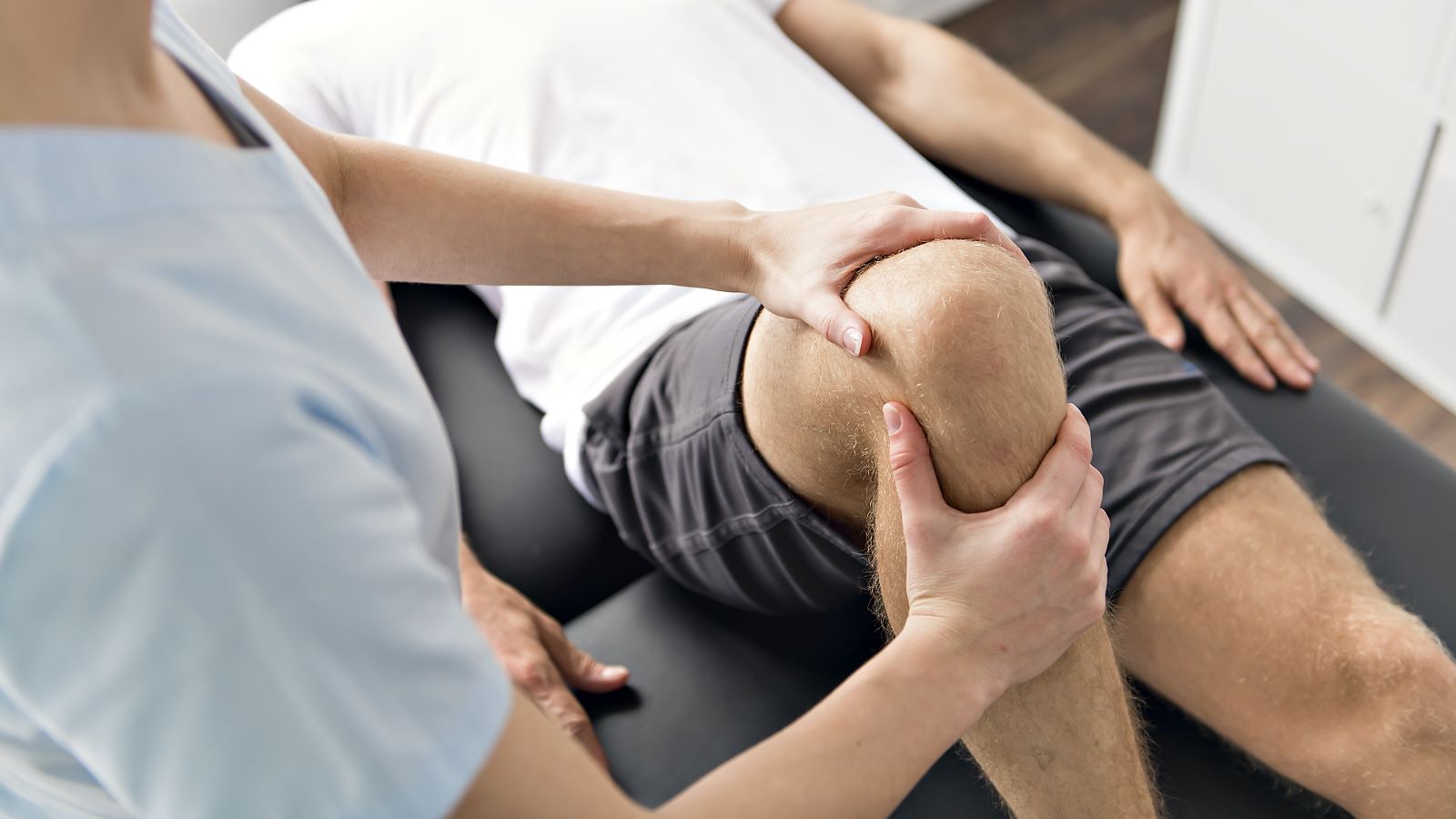<< Back
What NOT to Do After Knee Replacement Surgery

April 08, 2024
After your knee replacement surgery, are you itching to get back to the activities you love?
You can’t rush recovery, but doing the right things (and avoiding the wrong things) after surgery can make a big difference, says Carl Nissen, MD, an orthopedic surgeon with the Bone & Joint Institute at Hartford Hospital.
“The most important thing to do in early recovery is improve your motion and strength each day,” says Dr. Nissen. “As long as you stay true to your recovery plan, you’ll likely have a successful total knee replacement.”
Here are the top five things NOT to do after knee replacement surgery.
1. Don’t give in to the pain
There’s no getting around it — knee replacements come with pain.
“Unfortunately, knee replacement surgery is painful, especially in the early postoperative stage,” says Dr. Nissen. “It’s important not to give in to this discomfort but instead find ways to work through it or around it.”
The best thing you can do might be a surprise: Range of motion and strengthening exercises, which your doctor or physical therapist will provide.
“Even though it might feel uncomfortable, break up your range of motion exercises into shorter sessions throughout the day,” suggests Dr. Nissen. “This should be more successful than trying one extensive exercise period in one go. For more benefits, add in massage, ice and gentle stretching.”
And if you do let the pain win and stay sedentary?
“We primarily perform knee replacement surgery to reduce pain. In most cases, we can help you get this relief quickly,” answers Dr. Nissen. “But if you think the recovery will happen without your effort, it could lead to knee stiffness and even lifelong loss of range of motion.”
2. Don’t rely on medication for recovery
Raise your hand if you want quick results and immediate gratification.
We’re with you, but pain after knee replacement is part of healing.
“While medications can help ease the discomfort, using medicine as your primary way to deal with pain can delay recovery and slow down the return to normal functional activities,” explains Dr. Nissen.
He suggests a simple timeline:
- Use prescribed medication immediately after surgery.
- Take medicine only at night on day one or two to help with sleep if needed.
- Aim to get off medication at the one-week mark.
- Once off your meds, focus on achieving motion, boosting strength and reducing inflammation.
> Related: What NOT to Do When You Have Knee Pain
3. Don’t forget about your rehab
There’s not one specific way to rehabilitate from your total knee replacement. But your doctor will have a protocol for you to follow.
The key is to communicate with your doctor and physical therapist.
“You can accomplish some protocols differently,” adds Dr. Nissen. “If you want to do something, like use your stationary bike for your range of motion exercises, chat with your doctor. We are here to help you successfully get through your rehabilitation.”
4. Don’t get frustrated
Easier said than done, right? But hear us out.
“As with any surgery, knee replacement recovery will look different for everyone,” says Dr. Nissen. “It’s unfortunate when we hear miraculous stories about recovery — like people jumping back into activities with zero issues right after a total knee replacement. That just isn’t guaranteed reality.”
5. Don’t ignore signs you may need to call your doctor
Before surgery, your doctor will schedule post-op appointments.
Call the office if you have any “new pains” or worrisome discomfort outside these planned visits.
“These could be signs that you have an infection within or around your knee or a mechanical abnormality that needs attention,” says Dr. Nissen.
There are also signs you may need immediate medical attention, including:
- Trouble breathing or pain in your chest (may indicate a pulmonary embolism).
- Signs of Deep Vein Thrombosis (DVT) like cramping/soreness in the calf or thigh.
- Gradually increasing pain without relief.
- Swelling and/or redness around the incision.
Is it time for your knee replacement? Don’t wait too long.
Conservative treatments often stop working.
“If your knee pain alters your life or dictates your day, it’s likely time for your total knee replacement,” says Dr. Nissen.
Don’t sit on it.
“One of the most common things we hear from folks who have had a total knee replacement is wondering why they waited so long,” he says. “If you’re in pain, get this appointment on the books.”